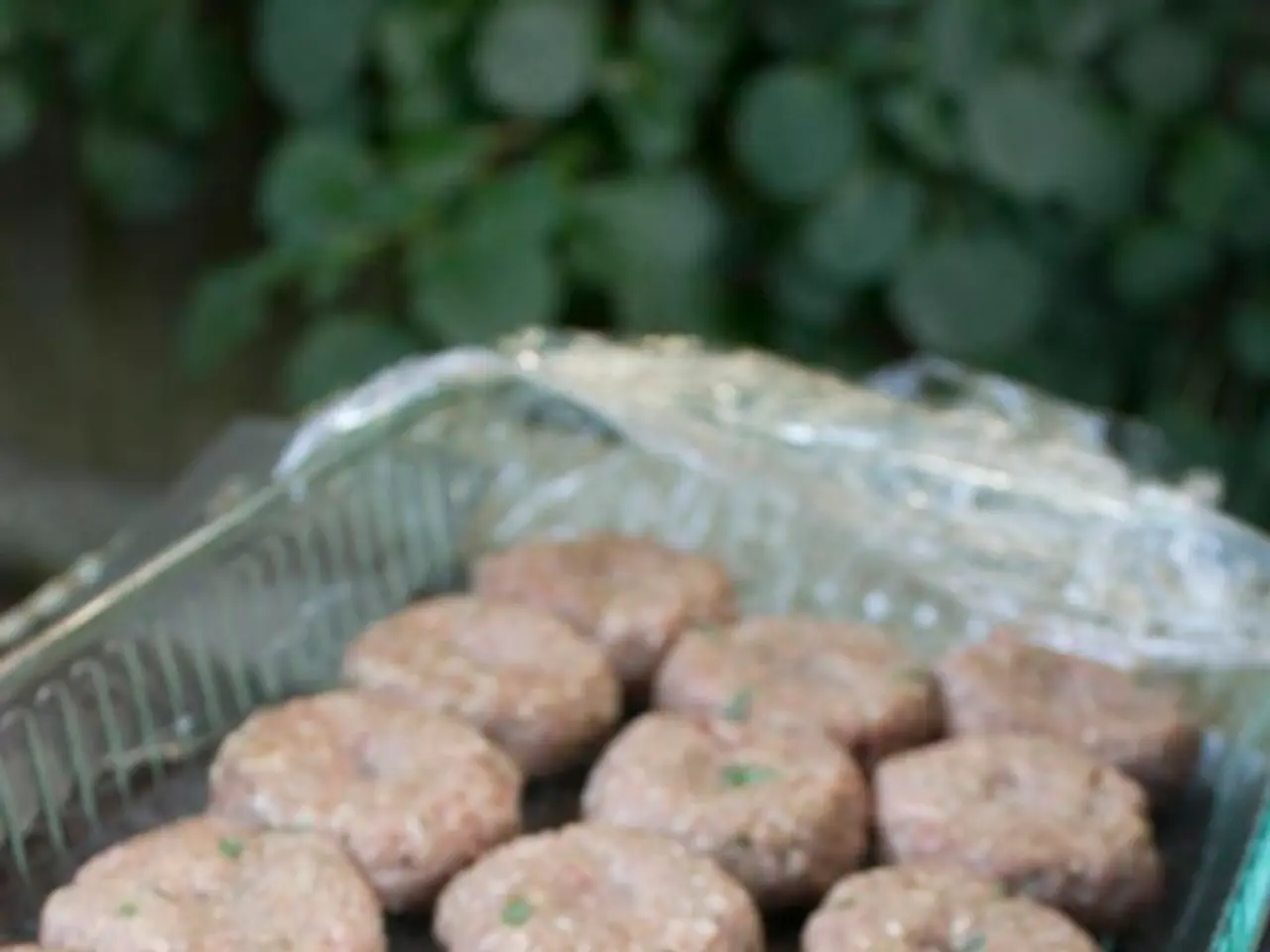Avoiding certain foods when dealing with bile duct cancer
Bile duct cancer, a type of cancer that begins in the special tubes that bile passes through during digestion, can be a challenging journey for those affected. This article aims to provide a clear and straightforward guide to nutrition and diet, based on expert advice from Cancer Research UK and other reputable sources.
People with bile duct cancer may experience appetite changes and weight loss, making it essential to consider speaking with a dietitian to create an appropriate eating plan. A personalized meal plan, tailored to support liver function and reduce inflammation, can be crucial in managing the disease.
It is generally advised to avoid high-fat foods, processed and fried foods, and excessive red meat. These can burden the liver and digestive system, potentially exacerbating symptoms or impairing liver function. Specifically, foods to limit or avoid include:
- Fried and greasy foods
- High-fat meats
- Full-fat dairy products (like cream, full-fat cheese, and whole milk)
- Processed meats containing nitrates/nitrites (such as sausages, bacon)
- Foods high in refined sugars and sodium
- Avocado and olives may also be restricted due to fat content in some cases
- Heavy or creamy sauces on pasta and rice dishes
Instead, opt for lower-fat, easier-to-digest options such as plain breads, boiled pasta, rice, fruits (except avocado and olives), steamed or raw vegetables, and low-fat dairy.
A dietitian can play a crucial role in managing bile duct cancer. They can create a personalized meal plan, advise on foods that help lower bilirubin levels and ease digestion, monitor nutritional status to prevent malnutrition, help manage symptoms such as nausea or loss of appetite, and provide ongoing support and adjustments based on lab results and treatment progress.
In addition, avoiding processed foods, caffeine, and alcohol may help provide relief from bile duct cancer symptoms. Cancer Research UK recommends choosing full-fat versions of snacks, such as yogurt and pudding, to help manage weight loss. Good snacking options include dried fruit, nuts, cheese, instant soups, and milky drinks.
While certain supplements may be helpful for people with bile duct cancer, such as protein powders or energy powders, enzyme supplements, etc., it is best to contact a doctor for advice before taking supplements to ensure they will not interact with any medications or other treatments.
The exact cause of bile duct cancer is unclear, but certain risk factors have been identified, such as older age, history of bile duct conditions, exposure to chemicals, obesity, diabetes, smoking, etc.
Bile duct cancer can spread to other organs, such as the pancreas and gallbladder, and to blood vessels, lymph nodes, and other tissues in the body. The average life expectancy for bile duct cancer varies for each person, with localized intrahepatic and extrahepatic bile duct cancers having 5-year survival rates of 23% and 18% respectively.
Working with a registered dietitian specializing in liver and digestive health ensures that nutritional strategies complement medical treatment and improve quality of life during bile duct cancer care.
- A dietitian specializing in liver and digestive health can create a personalized meal plan to manage bile duct cancer, advise on foods that help lower bilirubin levels and ease digestion, monitor nutritional status to prevent malnutrition, and provide ongoing support and adjustments based on lab results and treatment progress.
- Cancer Research UK recommends avoiding processed foods, caffeine, and alcohol, which may help provide relief from bile duct cancer symptoms, and choosing full-fat versions of snacks, such as yogurt and pudding, to help manage weight loss. Good snacking options include dried fruit, nuts, cheese, instant soups, and milky drinks.
- People with bile duct cancer may need to limit or avoid foods high in fat, refined sugars, and sodium, such as fried and greasy foods, high-fat meats, full-fat dairy products, processed meats containing nitrates/nitrites, and avocado and olives in some cases, as these can burden the liver and digestive system.
- While enzyme supplements and protein or energy powders can be helpful for people with bile duct cancer, it is essential to consult a doctor before taking supplements to avoid potential interactions with medications or other treatments.




